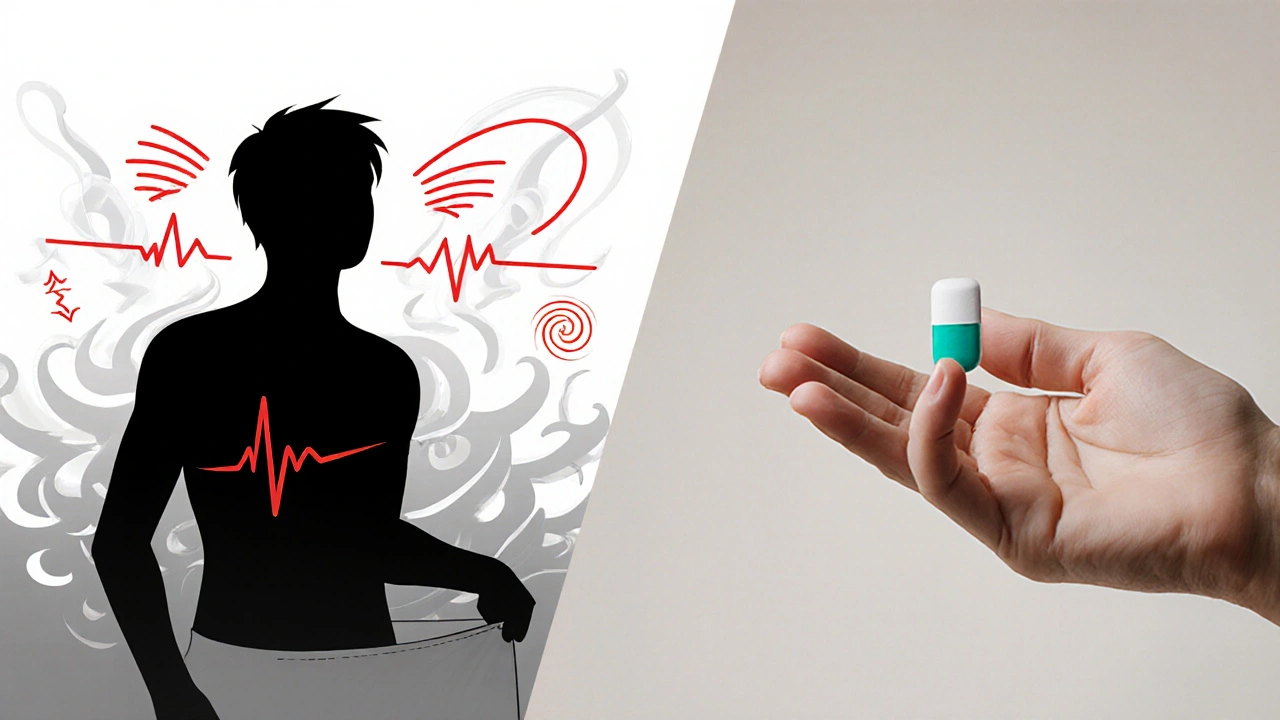Thyroid Medication: Types, Uses, and Safety Tips
When working with thyroid medication, any drug that adjusts thyroid hormone levels to treat hypothyroidism or hyperthyroidism. Also known as thyroid therapy, it helps restore metabolic balance and prevent long‑term complications.
One of the most common agents is Levothyroxine, a synthetic form of the hormone T4 used to replace missing thyroid hormone in hypothyroid patients. It works by raising T4, which the body then converts to active T3, normalizing TSH levels. Another key player is Methimazole, an antithyroid drug that blocks hormone synthesis in overactive thyroid glands. Methimazole reduces excess hormone production, easing symptoms of hyperthyroidism. For definitive treatment, many clinicians turn to Radioactive iodine, a targeted radiation therapy that selectively destroys thyroid tissue. This approach is often chosen when medication alone cannot control the disease. Finally, the broader category of thyroid hormone replacement therapy, includes both synthetic and natural extracts like desiccated thyroid, offers alternatives for patients who don’t respond well to standard levothyroxine.
Key Considerations When Choosing a Thyroid Medication
Understanding the link between the medication and the underlying condition is crucial. Thyroid medication selection depends on whether you need to add hormone (hypothyroidism) or cut back (hyperthyroidism). Dosage is typically guided by blood tests measuring TSH, free T4, and sometimes free T3. Over‑replacement can trigger heart palpitations, anxiety, or bone loss, while under‑replacement leaves fatigue and weight gain untreated. Antithyroid drugs like methimazole require monitoring for liver issues and rare drops in white blood cells. Radioactive iodine, though effective, may lead to permanent hypothyroidism, meaning lifelong hormone replacement becomes necessary.
Other factors shape the decision: age, pregnancy status, other medications, and personal preferences. Pregnant women usually stay on levothyroxine because it’s safe for the fetus, while some patients prefer natural desiccated thyroid for a broader hormone profile. Drug interactions matter too—calcium, iron, and certain cholesterol meds can blunt levothyroxine absorption, so timing of doses matters. In practice, clinicians often start with a low levothyroxine dose, adjust every 6‑8 weeks, and reevaluate symptoms alongside lab results.
All this information sets the stage for the articles below. Whether you’re looking for step‑by‑step taper guides, safety overviews, or practical tips for managing medication side effects, the collection offers clear, evidence‑based insights you can apply right away.
Carbimazole Explained: How It Treats Hyperthyroidism
- Laura Ledas
- Oct, 9 2025
Learn how Carbimazole works to treat hyperthyroidism, its dosing, side‑effects, and how it compares with other antithyroid options in a clear, practical guide.
Learn More